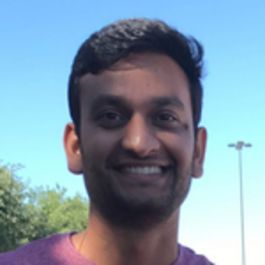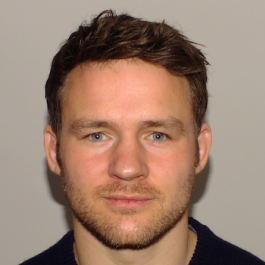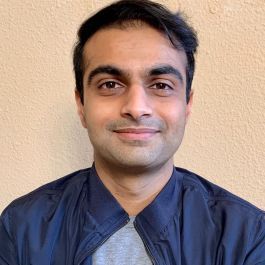What gets a systems engineer out of bed in the morning — and what keeps them up at night?
It depends on who you ask. Every systems engineer helps build products and ensure they run properly. Systems engineers may share similar titles, but what they do day to day can be very different.
At Enduvo, systems engineers could be optimizing a virtual reality platform for mobile headsets, whereas at Jellyvision or tastytrade, system engineers could be streamlining the communication layer between legacy systems or spending their days updating Elasticsearch, respectively.
But, no matter the project or platform, some traits are ubiquitous for success in the role, according to technical pros we spoke to from various companies. They include: understanding the full scope of how various systems fit into core business functions; creating a shared vocabulary to reduce ambiguity in naming conventions; and being an effective problem-solver to make quick and creative decisions.
Without these traits, the engineers said systems and their impacts on a business could grow convoluted. Systems could get bogged down with confusing terminology and unnecessary processes that slow production and negatively affect users.
The engineers said they use the above skills to not only keep their systems operating efficiently but work on exciting projects every day that help advance their skills.
What Does a Systems Engineer Do?
Jellyvision
Nathan Green
SOFTWARE ENGINEER II

Nathan Green, a software engineer II at Jellyvision, said managing ambiguity is a key part of seeing success as a systems engineer. So his team at the employee benefits platform has a shared glossary they use to stay aligned on vocabulary and reduce ambiguity.
A typical day as a systems engineer at Jellyvision: “As a software engineer on an agile team, day-to-day tasks mostly revolve around the work currently slotted into our sprint,” Green said. “However, we have several initiatives rolling right now, so there’s quite a bit of planning to do. Beyond working on features and bug fixes, the job also involves communicating with stakeholders, keeping projects organized and documented and sharing knowledge with the team. Additionally, we strive to get code reviewed within 24 hours of it hitting our inbox, so code reviews are typically a daily task.”
Hold the line with your system vocabulary as best you can.”
A project Green is excited about: “Lately, we’ve been working on streamlining the communication layer between a couple of legacy systems and it’s a pretty big paradigm shift for us. Part of this initiative came from a team we spun up called the ‘Systems Integration Team’ whose mission was to identify high-level cross-system opportunities to improve architectures.
“We’re moving from a queuing system that generates static assets consumed by an API to more of an event-driven pattern that updates a database. This change is going to save hundreds of hours for our users who release thousands of updates to our interactive conversations over the course of the year. We’re strategically addressing technical debt in a way that will deliver real value. It also feels really good to bring some love to these legacy systems.”
Skills a systems engineer needs: “One important skill to have as an engineer working across multiple systems is the ability to manage ambiguity. Systems tend to take on a life of their own and organizational processes can evolve faster than the system’s ability to react. If not managed, you can end up with things suddenly being named strangely or have different layers of abstraction that make it difficult to determine how a system works.
“The old adage ‘naming things is hard’ plays out all the time. How do you manage that problem over time? One strategy we’ve seen some success with is merely defining a glossary that we can point to as a source of truth about what processes are called and what they mean. What are the nouns and verbs of the systems in question? Who are the users and their actions? Keep a running dialog with your stakeholders and hold the line with your system vocabulary as best you can.”
tastytrade
JT Schelling
INFRASTRUCTURE ENGINEER

Infrastructure Engineer JT Schelling said he’s been enjoying evolving Elasticsearch within the financial services company tastytrade. The project has given him greater breadth of experience in his day-to-day work and is helping him grow his skill set, he said.
A typical day as a systems engineer at tastytrade: “I usually start my day by checking our monitoring software for anything actionable that came up overnight or over the weekend,” Schelling said. “I deal with any immediate or easy issues and make notes, then backlog any other non-immediate matters. I spend the rest of my morning focused on larger projects like writing new Chef code or researching solutions to long-term problems. After that, I might stage deployments or contact teammates to work through pair issues with them. I do most of my code reviews in the afternoon and end the day with production deployments.”
Identify how all the disparate systems in a production environment fit into the larger puzzle.”
A project Schelling is excited about: “I’m currently working on upgrading our Elasticsearch deployment to deal with performance scaling long-term work. This project is full of interesting work like interacting with third-party support teams and hardware benchmarking, which I don't get to do in my average day to day.
“It’s been fun learning more about the internals of a tool our team uses every day. I’m getting exposure to other parts of systems engineering through the hardware-buying process and reformatting the deployment architecture to allow for long-term scalability. I really enjoy getting larger projects that allow me to grow as an engineer and develop a true depth of knowledge with individual tools.”
Skills a systems engineer needs: “First, it’s vital to be able to identify how all the disparate systems in a production environment fit into the larger puzzle of a functioning and reliable platform. Second, always be working to better understand the core business functions and requirements of the company. Understanding the interactions between these separate pieces helps a system engineer understand where potential problems can arise and makes them better and faster at resolving production issues.”
DigitalOcean
Vishal Verma
SENIOR ENGINEER I

Walk us through a typical day for you as a systems engineer. What are some of the key tasks on your to-do list?
As a systems engineer at DigitalOcean, I focus on keeping our infrastructure highly performant. I support various teams across our organization, from storage and compute to our DigitalOcean Control Center team.
Some key tasks on my to-do list include ongoing testing to ensure everything is running smoothly across our fleet, monitoring kernel performance, maintaining internal packages and provisioning our internal changes through Chef, a configuration management tool.
What’s a current or recent project you’ve worked on that was really interesting or challenging?
As a systems engineer, I’m always looking to find new ways to help improve our performance. This has been a really exciting area of focus for me because every test we complete helps make the experience of our customers that much better!
I have also enjoyed building a new performance telemetry service for our team, written in Golang. The project involved crunching and processing a vast amount of data, which enabled us to make even better business decisions around our fleet efficiency.
A successful software engineer should be passionate about taking on challenges.”
In your experience, what’s one of the most important skills a systems engineer needs to be successful?
Besides education and knowledge, a successful software engineer should be passionate about taking on challenges.
In a fast-working environment like DigitalOcean, you must be a problem-solver, an innovative thinker and a hard worker. Most importantly, a successful engineer should be a team player, have a positive outlook and be able to keep their cool.
Verkada Inc
Benjamin Bercovitz
CO-FOUNDER AND CHIEF SYSTEMS ARCHITECT

Verkada Co-Founder and Chief Systems Architect Benjamin Bercovitz said he’s been busy optimizing how metrics for the company’s security hardware and software products are collected. In doing so, he is exposing systems engineers to new levels of technical scale.
What are some key tasks on your to-do list?
The day begins with a glance at fleet metrics. If something is out of place then it will demand my undivided attention. Our myriad of charts serve as an early warning system for potential software issues and I’ve often left a load or stress test running overnight to see if something is working. For example, if I’m integrating a new smart motion search collector for our camera product, I check for errors and ensure the service output looks reasonable.
After that, I check in with the team to make sure no one is blocked, as this slows down momentum. Then I focus on a specific program or problem. I may need a new build, then I’ll continue with another part of the code. That code can be a long cycle, so I pack as many debugging pieces as possible, ranging from extra debug prints to adding debugs if it’s a kernel change. Most changes are in userland programs rather than in the kernel, so having the ability to do a thread stack trace or a memory dump is key.
Blaze your own trail and find a way to hack through all the barriers on your own.”
What’s a recent project that’s been exciting to work on?
One of our big initiatives is metrics and telemetry. One value-add of having a cloud-managed embedded device is knowing that our engineers are monitoring the health of the software and are responsive with patches for any issues.
I’ve been revamping how we collect stats on the system. Previously, we sent a JSON file to an endpoint with frequency to report, but we needed to add more diagnostic metrics due to high-traffic volumes. JSON was inefficient, so we developed a better way of collecting and pre-aggregating data. We’re working on sending a columnar table from the device for efficient data processing once on the cloud. Multiple components needed updating, from back-end APIs to device software to data workflows feeding our camera diagnostics data warehouse. Anything running on the device must run on a tight budget because there’s only so much RAM, CPU and space on the rootfs. This project is the crossroads of two challenges in our embedded systems: efficiency on hardware and monitoring at a scale beyond what most back-end engineers have seen.
What’s an important skill a systems engineer needs to be successful?
Persistence. Many systems have scant documentation, examples or support. Searching online will often give you zero hits. Even if you have access to an expert, they will not have time to show you everything. You need to blaze your own trail and find a way to hack through all the barriers on your own.
InfluxData
Andy Charlton
SENIOR ENGINEER

Good communication is just as important as technical ability for Andy Charlton and his engineering team at InfluxData, he said. Working on challenging projects and learning from them requires team members to always be on the same page, Charlton added.
What are some key tasks on your to-do list?
We’re responsible for not just developing features but also testing and supporting them when they’re in production, so my days vary considerably depending on what is needed at the time. I’ll often be working on new features or improvements to the system like planning, writing code or testing. If we have issues in our production clusters or a customer reports an urgent issue, then I may need to help get those challenges resolved. Code reviews are another key task on my to-do list.
The ability to communicate well is essential to be successful as an engineer.”
What’s a recent project that’s been exciting to work on?
I recently picked up an issue from a customer that reported some inconsistency in their data. The case was hard to reproduce and even harder to pin down. But eventually, we found that it was a rare race condition that only occurred when one of our Kubernetes pods restarted, and luckily no customer data was lost.
I really enjoyed working my way through the stack, testing my knowledge, reasoning skills and learning a lot in the process. After several false epiphanies, being able to finally pin down the exact cause and reproduce it on demand was an incredible feeling!
What's an important skill a systems engineer needs to be successful?
Outside of the obvious technical skills, I think the ability to communicate well is essential to be successful as an engineer. Distributed working and asynchronous communication seem to be more common these days. Communicating well both verbally and in writing helps so much in making sure that the team is on the same page and everyone is working on the right things.
VIZIO
Hunter Hobbs
SENIOR DATA ENGINEER

What they do: VIZIO is a hardware and software company that designs and sells televisions and soundbars.
What’s your typical day like as a systems engineer?
A typical day for me as a data engineer involves working with my team to design and build data pipelines that interface with various parts of the business, as well as external partners, that drive analysis, business intelligence and data science. Our team’s essential goal is to unify data across the entire organization.
Some days I’m primarily focused on understanding the domain of the data or the data itself, while other days I'm writing code and using tools such as Apache Spark and Kubernetes. My role as a data engineer provides me the opportunity to work with nearly every spoke of the business from the perspective of the data produced, which is a very unique vantage point.
What’s an interesting project you’ve recently worked on?
We are currently building out many exciting interactive features that will completely change or extend the way that people use their TVs. Data produced by these features is handled by my team and the interesting part is seeing what future products we have planned that will leverage this data and essentially push the limit of what we think of as a “TV.”
One of the most important skills as a data engineer is to remain teachable.”
What are some important skills a systems engineer needs to be successful?
In my experience, one of the most important skills as a data engineer is to remain teachable. Not only are new tools and better processes constantly being developed that require a passion for learning, but what has helped the most in my career is asking a lot of questions and relying on the knowledge of everyone I’ve been working with, past and present.
GoSpotCheck
Zan Thorn
CLOUD ENGINEER

What they do: GoSpotCheck is a software company that helps customers with merchandising, sales, labor and expenses, and safety and quality in the field.
What’s your typical day like as a systems engineer?
I usually start the day with a coffee while I check Slack messages and emails for any overnight fires that need attention. Assuming everything is good, I will pull a story from our Jira board and get started. This can be anything from fixing a broken CI build to migrating legacy apps or coding via Kubernetes. A few times a week, I’ll pair with another engineer to work on a difficult problem or simply just share knowledge. The most predictable part of being a CloudOps engineer is the unpredictability of the work!
I believe that persistence is an extremely important skill for engineers.”
What’s an interesting project you’ve recently worked on?
I was tasked with building a POC for a new machine-learning training pipeline. We went from a cloud service with very little control to an open source app running on Kubernetes backed by persistent volumes for the training data. This gave us much more control of the resources and some bonus cost savings.
What are some important skills a systems engineer needs to be successful?
I believe that persistence is an extremely important skill for engineers. I have worked on many problems that seem unsolvable at first. Sometimes you have no idea what to do next. But if you keep digging, researching and learning, you will find a path forward.
Thrive Market
Yash Kamothi
SENIOR SOFTWARE ENGINEER

One trait that makes Kamothi successful is adaptability. At Thrive Market, an e-commerce company that delivers healthy sustainable products, the senior software engineer is frequently balancing two or three completely different tasks at once. “That’s why it’s critical to adapt your approach to work well with the technology and tools that are in place today,” he said.
Walk us through a typical day for you as a systems engineer at your company.
Some days my head is down, and I am focused on delivering a new feature to improve our members’ shopping experience. Other days I’m trying to find the root cause of a bug or issue, and trying to prevent it from happening again. I regularly review pull requests that my team proposes so that whatever query, API, cron job or system being created can be flexible, robust and performant. Among other things, I also review our monitoring and alerting platforms to identify any bottlenecks in our systems and investigate to address the root causes.
What’s a current or recent project you’ve worked on that was really interesting or challenging?
I recently overhauled our existing system for exporting customers’ orders across our e-commerce platform to meet the scalability needs of our business. Our platform and customer base continues to quickly grow. I was tasked with making a new system that will scale and handle the load that the business is receiving, while keeping it efficient, robust and cost-effective.
If you are adaptable and resilient, the systems and applications that you create will likely show that same sense of resiliency.’’
The aspect that I enjoyed the most while working on this project was utilizing Golang and microservices to help solve a lot of our engineering problems. I leveraged my past experience with Go, along with the ease of concurrency that Go provides, to ensure that our platform scales efficiently and meets the guarantees and service-level agreements of our customers.
In your experience, what’s one of the most important skills a systems engineer needs to be successful?
Good judgment and adaptability. You will frequently be required to balance delivering features and capabilities while also working to modernize the platform, eliminate tech debt and improve performance and scalability. That’s why it’s critical to adapt your approach to work well with the technology and tools that are in place today.
You also must be thoughtful and pragmatic and know when to leverage off-the-shelf systems and when to build a custom solution. If you are adaptable and resilient, the systems and applications that you create will likely show that same sense of resiliency, and you’ll enjoy solving all sorts of problems in different environments.
Relativity Space
Eric Chumbley
SENIOR SYSTEMS ENGINEER

A tech background is important to be a successful systems engineer, Chumbley explained. But you’ll get nowhere without good communication. That’s what he’s learned at Relativity Space, a company that fuses 3D printing, artificial intelligence and autonomous robotics. “If you don’t know how or when to listen, or if you can’t explain details or concepts to all team members, a deep technical skillset won’t get you far.”
Walk us through a typical day for you as a systems engineer at your company.
At Relativity Space, we’re redefining the traditional role of a systems engineer. We believe in a distributed system engineering model where every engineer is a systems engineer, meaning each individual is expected to know how their product interfaces with other products and how it impacts the entire system. Additionally, each engineer is responsible for knowing what requirements they need to meet and how those requirements will be verified.
On any given day, a systems engineer at Relativity could be updating or creating tools to make sure they add value and efficiency, managing and reviewing requirements to ensure that the system as a whole will work as intended or helping to produce required regulatory documents. That’s the thing l like most about my role — there is no typical day. But the ultimate goal is always the same.
What’s a current or recent project you’ve worked on that was really interesting or challenging?
My involvement with hardware-in-the-loop (HITL) testing has been really interesting. Currently, I’m defining high-level testing as well as working with responsible engineers on how that testing will occur. What’s not to love about this project? The convergence of actual hardware with software is always a great milestone to see, and being a part of it is even better. While there is still a lot of work to get to launch, getting to this point of testing is a testament to how far the avionics group has come and it shines a light on our talented team.
I’ve seen brilliant system engineers with degrees in nuclear physics, mechanical engineering or computer science excel in this field.’’
In your experience, what’s one of the most important skills a systems engineer needs to be successful?
The skill of communication. That’s not to say a strong technical background isn’t important, because it is, but that technical background can be in pretty much any field. I’ve seen brilliant system engineers with degrees in nuclear physics, mechanical engineering or computer science excel in this field. Being able to understand technical information, dive deep when needed and see the picture are all important. But if you don’t know how or when to listen, or if you can’t explain details or concepts to all team members, a deep technical skillset won’t get you far.
The Aerospace Corporation
Donald Yang
PRINCIPAL DIRECTOR OF THE ELECTRONICS ENGINEERING SUBDIVISION

Want to be a great systems engineer? Just roll up your sleeves and work with everyone. That’s Yang’s advice. The principal director of the electronics engineering subdivision at The Aerospace Corporation, an aerospace company in El Segundo, believes that the key to being a standout systems engineer is having the ability to solve problems that satisfy all stakeholders.
Walk us through a typical day for you as a systems engineer at your company.
A typical day includes collaborating with technical staff to evaluate the flow of requirements from the satellite-level down to sub-system/box-level hardware. I have learned that improper requirement flow down will bite you later when hardware does not perform as expected, especially when it is on the path to the integration and test stage.
I’ve had many opportunities to take on a variety of engineering responsibilities throughout my career at Aerospace. Some of those responsibilities include space architecture development, integration, test and the launch of satellites.
What’s a current or recent project you’ve worked on that was really interesting or challenging?
I supported the integration and test campaign for a first-of-its-kind satellite. Of the many problems that occurred during the first two years of the integration and test campaign, none were in my area of expertise. Thus, I learned so much about other technical areas, with the biggest lesson being that compromises at earlier stages of satellite design will have unintended consequences when the hardware is built.
A standout systems engineer has the ability to solve problems that satisfy all stakeholders, from the customer to the contractor to the user.’’
In your experience, what’s one of the most important skills a systems engineer needs to be successful?
I have worked with many engineers across the space industry. The most important skill I see as a systems engineer is an ability to roll up your sleeves and work with the hardware engineers, program managers and customers to deliver hardware that works.
Each stakeholder in a project will propose options that most benefit their bottom line. Program managers want to make sure that projects are on schedule, hardware engineers want the hardware to work and customers want the project to stay on budget. A standout systems engineer has the ability to solve problems that satisfy all stakeholders, from the customer to the contractor to the user.
Chewy
Jonathan Reynolds
ASSOCIATE DIRECTOR, ENTERPRISE SYSTEMS

Unlike some other companies, systems engineers at Chewy, an e-commerce platform for pet supplies, are customer-facing. Jonathan Reynolds, the associate director of enterprise systems, said that as a result, successful systems engineers at the company operate with a sense of urgency and a desire to do the right thing, regardless of how difficult the task is.
What’s your typical day like as a systems engineer?
Being a systems engineer means being at the center of mission-critical, backbone platforms across the enterprise. It’s a perfect role for people who thrive on “organized chaos” and don’t like doing the same thing every day.
Tasks vary widely but include:
- Designing and troubleshooting authentication mechanisms through active directory security groups and Okta SAML or OIDC apps. This includes being central to the flow of “people data,” using demographic attributes to create dynamic groups where possible and understanding how each system gets its data.
- Acting as the final escalation tier and performing general care-and-feeding of our core platforms, monitoring resources of our active directory domain controllers, making sure they can handle the demand and planning for the next domain functional level.
- Integrating disparate systems, whether by out-of-the-box integrations or custom API scripting.
- Managing and optimizing our ever-growing portfolio of SaaS applications.
- Acting as a trusted partner between IT and business, collecting their pain points and turning them into solutions — or liaising them into existing tools they didn’t know we had.
What’s an interesting project you’ve recently worked on?
An exciting and challenging project we are currently engaged in is switching our cloud-based email security platform. With the new provider, we will save thousands of dollars annually and gain access to more capabilities than before. We recently finished the lift-and-shift of what we had with the previous provider — inbound filtering and threat analytics only — and completed it flawlessly in only a month!
We’re now working on releasing new features like:
- Outbound filtering.
- A plugin to interact with your quarantine or report spam right from Outlook.
- Office 365 mailbox backup and restore.
- Email continuity.
- Automated threat remediation.
Thankfully, based on previous lessons learned, we crafted a communication strategy to prepare our team members for this upcoming change multiple times in advance — and continue to do so as we roll out new features — so we haven’t created a burden on our service desk!
Being a systems engineer means being at the center of mission-critical, backbone platforms across the enterprise.”
What are some important skills a systems engineer needs to be successful?
I would say a customer-first mentality is the most crucial. As a systems engineer, you’re typically not customer-facing, but at Chewy, our customers extend to our internal team members. Successful systems engineers understand and internalize this, always aiming to deliver exceptional experiences, striving to understand and anticipate needs and being relentless about fulfilling them. They have a sense of urgency and a desire to do the right thing, regardless of how difficult. They’re able to adapt — the most successful engineers are a “jack of all trades and a master of some.”
The required skill sets are extremely broad, so systems engineers are best served with a mindset for the holistic enterprise environment, determining how systems fit together in new ways to make them more efficient and powerful. They’re passionate about growing, which often means digging in and becoming a subject matter expert in a platform that nobody has experience with yet and being able to handle multiple in-flight projects at the same time, often with shifting requirements and deadlines.
But most of all, it means having empathy, compassion and a bent toward the collaborative. With this, everything else falls into place.
Digital Innovation Hub
Siddharth Singh
SENIOR SYSTEMS RELIABILITY ENGINEER

In order to be successful at Dawn Food Products, an e-commerce hub for bakery products and ingredients distribution, systems engineers need a well-rounded knowledge set. Aside from a basic engineering foundation, Senior Site Reliability Engineer Siddharth Singh said they also need to be adept at problem-solving and able to work well with other engineers on the team.
What’s your typical day like as a systems engineer?
At Dawn Foods, our customer is at the center of all that we do, so my role is customer-focused. Our customers start very early in the day and create a shopping list and place their orders. So, my first priority is to keep Dawn Foods’ digital platform up and running, smoothly, every day.
The following is a list of key tasks on my to-do list every day:
- Check any alerts for failed orders or any other alerts.
- Check that all nightly jobs are successful.
- Check that the application’s monitoring dashboard looks good.
- Scrum meeting.
- One-on-one meetings with developers for discussing and resolving technical roadblocks.
- Find opportunities for automation.
- Improving CI/CD automation, infrastructure creation and patching.
- And lastly, take part in architectural design discussion.
What’s an interesting project you’ve recently worked on?
The most interesting project I recently worked on was the setup of the application’s monitoring dashboards, alerts, application performance monitoring (APM) and logging.
A few challenges I faced were on the integration of monitoring tools in our application, removing the unnecessary logs from each service and the APM setup. But for me, these challenges turned out to be fun! I was able to cover a wide range of topics to improve the code performance and learn the details of the services’ behaviors and interact with different engineers on the team. It’s always delightful and fun to help team members debug issues and provide them information on their code’s behaviors.
As a systems engineer at Dawn Foods, my first priority is ensuring our digital platform is up and running, smoothly, every day.”
What are some important skills a systems engineer needs to be successful?
The basic foundation for SREs or systems engineers includes monitoring, alerting, minimizing toil, SLOs, release cycle and, most importantly, automation. It also requires being adept at problem-solving, working as part of a team, having exceptional communication skills and solving reliability problems.
Below are few of the most important skills system engineers need to be successful at:
- Software-centric thoughts.
- Coding in any language.
- Understanding the application software stack.
- Automating any and all manual efforts.
- Not fearing complexity and scale.
- Ability to continuously learn new things.
Enduvo
Justin Drawz
LEAD ENGINEER

Lead Engineer Justin Drawz and his team at augmented and virtual reality content provider Enduvo said they’ve been busy working with the Oculus Quest hardware. Drawz said the project has been fun but challenging because of the restrictions placed on the team by the hardware and the pandemic.
A typical day as a systems engineer at Enduvo: “I start my morning by reviewing our dev team’s progress and planning out goals for the day,” Drawz said. “From there, I check application diagnostics and follow up on any technical support requests. Next is our team’s daily stand-up to discuss status, roadblocks and next steps. Based on this discussion, I schedule time to collaborate with team members, assist with design, help with system integrations and do code reviews.
“Later in the day, I work with our business and product teams on the product roadmap. This collaboration may involve many things: assessing upcoming technology choices, reviewing high-level system design or working with a product owner to define smaller, solvable pieces. With my remaining time, I dive into my own development items like larger system implementations, integrations or pipeline improvements. I conclude by summarizing out my results and checking in on the team’s progress again.”
A successful engineer can break down a complex problem into more manageable components.”
A project Drawz is excited about: “I’ve really enjoyed bringing the Enduvo application to the Oculus Quest. There’s immense value in virtual reality, but many VR headsets require a high-end gaming computer to run them. The Quest delivers those benefits of immersion but in an affordable mobile device.
“For this project, the engineering team and I focused on reducing the memory footprint of the application. We also began implementing systems to ensure users’ digital assets were compatible across platforms. This move was particularly challenging when considering complex 3D models designed for use on a PC. Despite the physical distance caused by the pandemic, we optimized the platform for mobile hardware and redesigned the workflow for authoring immersive experiences on these devices.”
Skills a systems engineer needs: “Engineering is all about problem-solving. A successful engineer can break down a complex problem into more manageable components, identify the important details and use this understanding to formulate a creative solution. This ability not only results in improved efficiency and higher-quality code from the individual but also provides a framework for better communication across the team. With a problem modeled in this way, it’s much easier to focus on the details and it takes far less effort to make decisions.”




